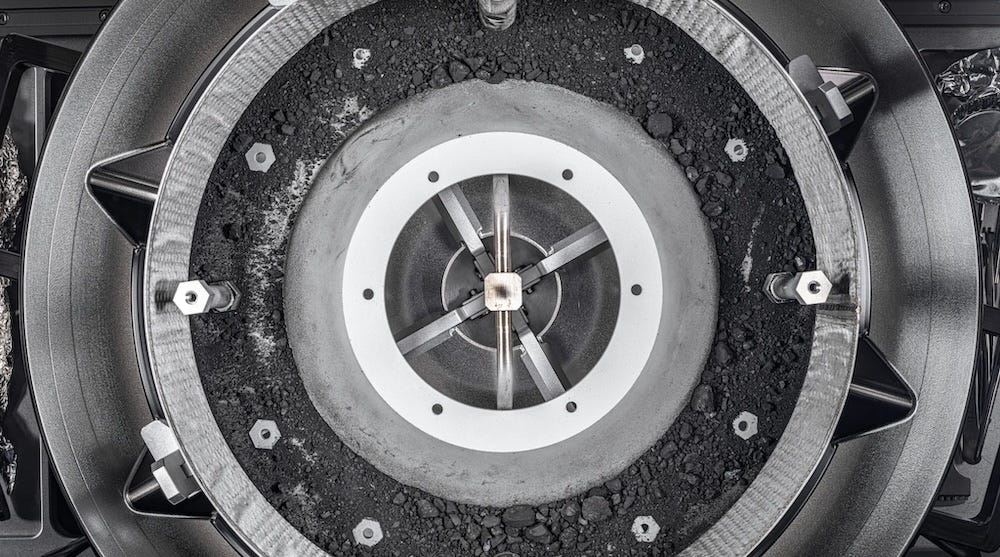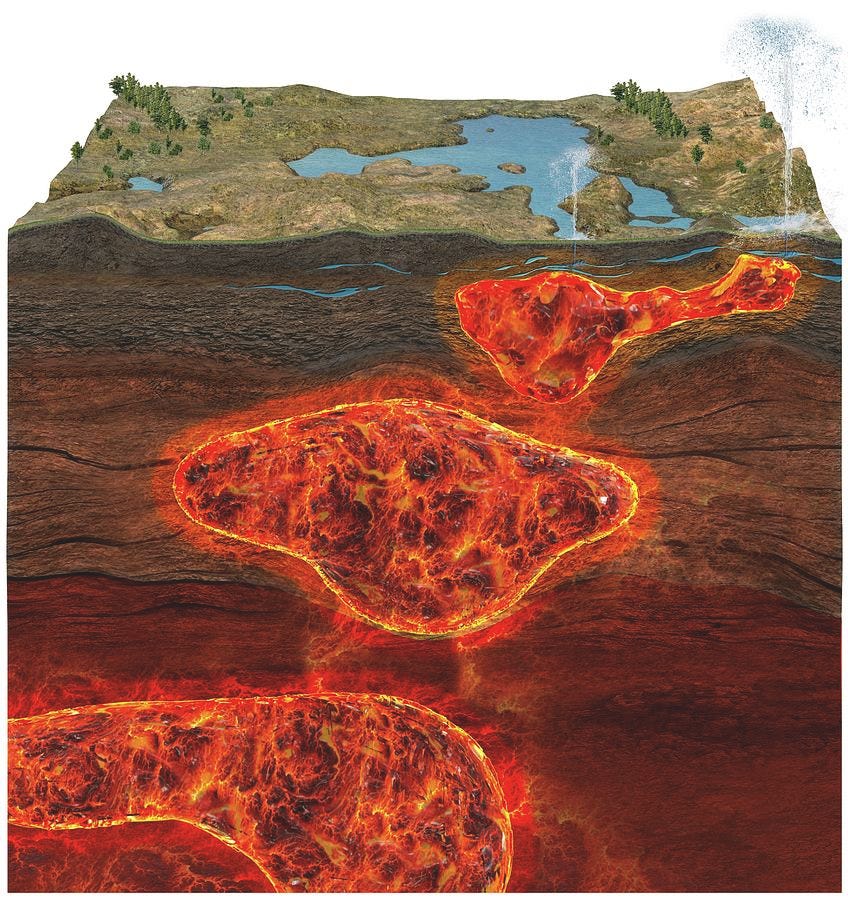#37: Mysterious Bitcoins, Ingenuity, Miracle iPhone, Stuxnet, Yellowstone Power, USB Chargers, AI Chips, and more!
Hi everyone!
First off, happy new year to you! I hope you started the year positively and are ready to make 2024 an exceptional year.
As with every new year, I've been setting some goals for myself. Only this time, I made them highly actionable, and I plan to review my progress at the end of every month. That may seem excessive, but it might be the only way for me to actually make progress towards achieving my goals.
One of my goals is to make more short form content for YouTube, Instagram, and TikTok. I haven't been a big fan of these platforms because I feel they shorten our collective attention span. But rather than fighting this trend, I figured I might as well challenge myself to "simply explain" topics in 30 seconds. I'm planning on uploading 2 shorts per week, and only stop when nobody watches them. Let's see how it goes!
Enjoy this edition and stay curious!
Xavier
🤓 Cool Stuff I Found on the Internet
The Netflix Prize: $1 million for an unused algorithm
When Netflix was still renting DVDs, it offered $1 million dollars for a better recommendation algorithm. The winning formula improved suggestions by 10%, but Netflix never used it. Instead, the company pivoted to streaming.
Who sent $1.2 million Bitcoin to Satoshi Nakamoto
Someone sent Almost 27 BTC from a Binance account to the genesis wallet, the first ever Bitcoin wallet created by Satoshi himself. The transaction took place 2 days after Bitcoin's 15th anniversary, and there are many theories about why someone would make it. It could be a marketing stunt to increase attention for the Bitcoin ETFs that launched recently. Or it might be to reveal the identity of Satoshi. Recipients of large crypto transfers are now required to large transactions to the IRS.
Over 10,000 papers retracted in 2023
Fraudulent research is flooding the academic world. Last year, over 10,000 papers had to be retracted after the peer review process found inaccuracies or even fabricated results. The retracted papers gathered 35,000 citations, meaning that even retracted papers can continue to influence academics.
Miracle iPhone survives 16,000 foot drop
Someone dropped an iPhone from the Alaska Airlines flight that had a panel flying off. It landed in a forested area in Oregon and survived the impact with no damage! The device was still open to a baggage claim email from the airline. Are iPhones the new Nokia 3310s?
Stuxnet: who got the virus into Iran's nuclear facilities?
In 2007, a computer virus infected an Iranian uranium enrichment facility where it destroyed 1000 centrifuges. It’s unclear how the virus got into in the facility, as it wasn’t connected to the internet. One theory says it was distributed via a USB drive. New research suggests a Dutch national brought into the facility it via an infected water pump.
Short on storage? Ceramics could store 10,000TB!
Tired of always running out of storage on your devices? Cerabyte might have an answer with a novel technique that can store massive amounts of data on a ceramic material. The material can store data for over 5000 years, thanks to a laser etching technique. Those are very bold claims, and the company is now planning to commercialize the technology.
Gently down the stream: how queuing systems work
This beautifully animated story explains how queuing systems work so that even a small child could understand it. It was written by Mitch Seymour, and he also has an animated story explaining the cloud.
🪐 Space
NASA finally able to open its asteroid sample
The OSIRIS-REx mission collected samples from the Bennu asteroid and brought it back to Earth in September of last year. However, two screws of the sample container were stuck, and it took NASA 3 months to get them open. They had to design custom tools to pry it open. The sample could tell us more about the origins of life and the early solar system.
This charger could land men on the moon!
Some USB-C chargers have processors onboard that are faster than the computer that put men on the moon! In this (highly technical) article, the author compares several chargers to the Apollo Guidance Computer. One charger is 500x faster and has twice the memory! In theory, that charger could run all the calculations to land on the moon. Wow!
Ingenuity can no longer fly on Mars
Our beloved martian helicopter has sadly been damaged during 72nd flight. The helicopter got into trouble when its navigation system got confused by the featureless terrain and damaged the rotor blades. Ingenuity was intended to only fly 5 times and operate for 30 days, so it has been a massive success. It also paved the way for future aerial exploration of Mars.
⚡️ Energy & Environment
Tapping the power of Yellowstone
Yellowstone harbors a super volcano capable of catastrophic eruptions. Recent studies explore the idea of tapping into the magma chambers to generate electricity while mitigating the risks of eruption. Theoretically possible, but practically very challenging.
Bottled water contains 240,000 pieces of micro plastics
A new technique to detect microplastics reveals that bottled water contains an enormous amount of "nano" plastics. While that sounds terrible, we actually don't know the impact of it on human health.
Visualizing global waste
The average US citizen produces 809kg of waste per year (that's 2kg per day per person). That sounds like a lot, but what does that look like on a global scale? This infographic attempts to visualize the amount of garbage we produce and what happens it with it (spoiler: less than 20% is recycled).
🧠🤖 Artificial intelligence
AI to reduce traffic and pollution: Project Green Light
Google is using AI to help cities minimize waiting times at stoplights. The model can reduce fuel consumption and intersection delay times by 20%, while increasing air quality by 18%! It uses real-time data from Google Maps to optimize the timing of traffic lights. It’s currently deployed on a handful of intersections, and it will expand to more cities this year.
OpenAI wants to build its own chips for ChatGPT
Running a service like ChatGPT requires a massive amount of GPUs. Nvidia is supplying most of these, but is also a bottleneck as it can't meet demand. OpenAI is exploring the option of making its own chips specifically for running AI models. The company is reportedly looking for $100 billion.
Thank you for reading this edition of the Simply Explained newsletter! Leave a comment and let me know what you liked, and what could be improved in the future. I really appreciate your input!






